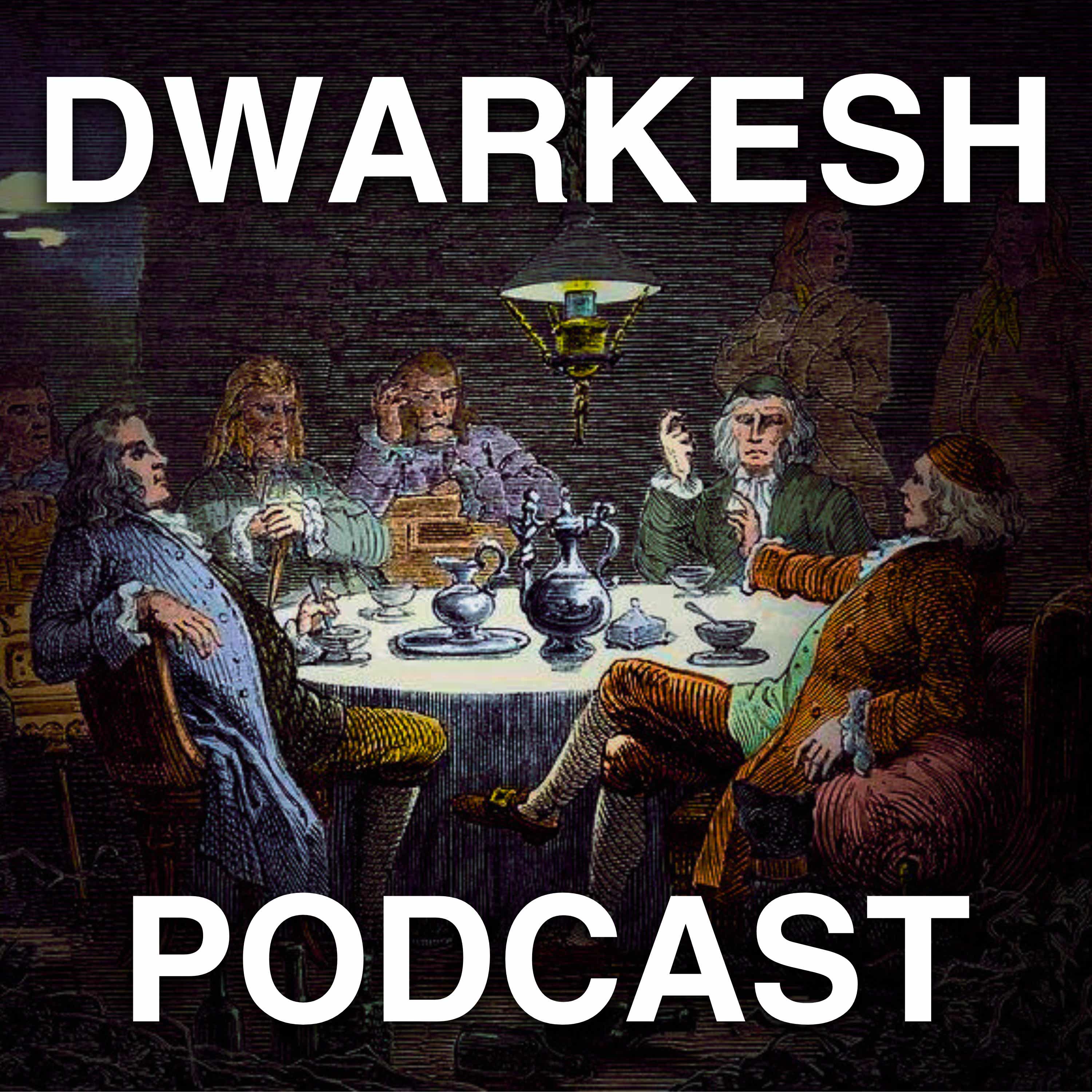Richard Rhodes - Making of Atomic Bomb, AI, WW2, Oppenheimer, & Abolishing Nukes
Description
It was a tremendous honor & pleasure to interview Richard Rhodes, Pulitzer Prize winning author of The Making of the Atomic Bomb
We discuss
* similarities between AI progress & Manhattan Project (developing a powerful, unprecedented, & potentially apocalyptic technology within an uncertain arms-race situation)
* visiting starving former Soviet scientists during fall of Soviet Union
* whether Oppenheimer was a spy, & consulting on the Nolan movie
* living through WW2 as a child
* odds of nuclear war in Ukraine, Taiwan, Pakistan, & North Korea
* how the US pulled of such a massive secret wartime scientific & industrial project
Watch on YouTube. Listen on Apple Podcasts, Spotify, or any other podcast platform. Read the full transcript here. Follow me on Twitter for updates on future episodes.
Timestamps
(0:00:00) - Oppenheimer movie
(0:06:22) - Was the bomb inevitable?
(0:29:10) - Firebombing vs nuclear vs hydrogen bombs
(0:49:44) - Stalin & the Soviet program
(1:08:24) - Deterrence, disarmament, North Korea, Taiwan
(1:33:12) - Oppenheimer as lab director
(1:53:40) - AI progress vs Manhattan Project
(1:59:50) - Living through WW2
(2:16:45) - Secrecy
(2:26:34) - Wisdom & war
Transcript
(0:00:00) - Oppenheimer movie
Dwarkesh Patel 0:00:51
Today I have the great honor of interviewing Richard Rhodes, who is the Pulitzer Prize-winning author of The Making of the Atomic Bomb, and most recently, the author of Energy, A Human History. I'm really excited about this one. Let's jump in at a current event, which is the fact that there's a new movie about Oppenheimer coming out, which I understand you've been consulted about. What did you think of the trailer? What are your impressions?
Richard Rhodes 0:01:22
They've really done a good job of things like the Trinity test device, which was the sphere covered with cables of various kinds. I had watched Peaky Blinders, where the actor who's playing Oppenheimer also appeared, and he looked so much like Oppenheimer to start with. Oppenheimer was about six feet tall, he was rail thin, not simply in terms of weight, but in terms of structure. Someone said he could sit in a children's high chair comfortably. But he never weighed more than about 140 pounds and that quality is there in the actor. So who knows? It all depends on how the director decided to tell the story. There are so many aspects of the story that you could never possibly squeeze them into one 2-hour movie. I think that we're waiting for the multi-part series that would really tell a lot more of the story, if not the whole story. But it looks exciting. We'll see. There have been some terrible depictions of Oppenheimer, there've been some terrible depictions of the bomb program. And maybe they'll get this one right.
Dwarkesh Patel 0:02:42
Yeah, hopefully. It is always great when you get an actor who resembles their role so well. For example, Bryan Cranston who played LBJ, and they have the same physical characteristics of the beady eyes, the big ears. Since we're talking about Oppenheimer, I had one question about him. I understand that there's evidence that's come out that he wasn't directly a communist spy. But is there any possibility that he was leaking information to the Soviets or in some way helping the Soviet program? He was a communist sympathizer, right?
Richard Rhodes 0:03:15
He had been during the 1930s. But less for the theory than for the practical business of helping Jews escape from Nazi Germany. One of the loves of his life, Jean Tatlock, was also busy working on extracting Jews from Europe during the 30. She was a member of the Communist Party and she, I think, encouraged him to come to meetings. But I don't think there's any possibility whatsoever that he shared information. In fact, he said he read Marx on a train trip between Berkeley and Washington one time and thought it was a bunch of hooey, just ridiculous. He was a very smart man, and he read the book with an eye to its logic, and he didn't think t
More Episodes
Here is my conversation with Francois Chollet and Mike Knoop on the $1 million ARC-AGI Prize they're launching today.
I did a bunch of socratic grilling throughout, but Francois’s arguments about why LLMs won’t lead to AGI are very interesting and worth thinking through.
It was really fun...
Published 06/11/24
Published 06/11/24
Chatted with my friend Leopold Aschenbrenner on the trillion dollar nationalized cluster, CCP espionage at AI labs, how unhobblings and scaling can lead to 2027 AGI, dangers of outsourcing clusters to Middle East, leaving OpenAI, and situational awareness.
Watch on YouTube. Listen on Apple...
Published 06/04/24


